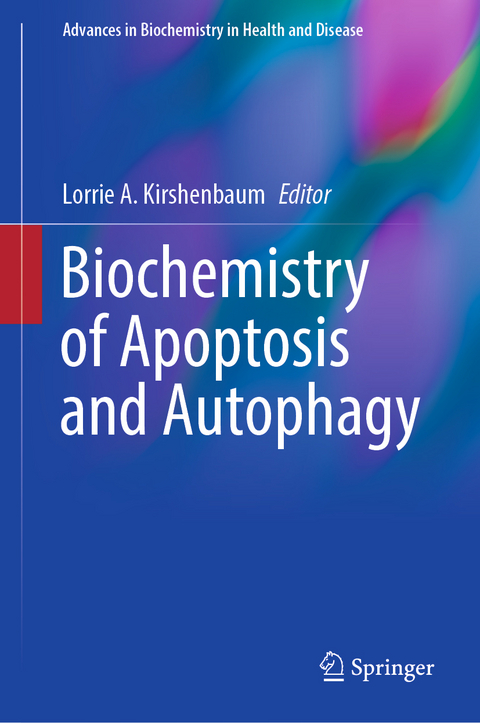
Biochemistry of Apoptosis and Autophagy
Springer International Publishing (Verlag)
978-3-030-78798-1 (ISBN)
While there is little doubt that necrosis induced by massive cellular trauma is likely an unregulated event, several lines of investigation have challenged the dogma that necrotic cell death ismerely unregulated. Emerging data has shifted the paradigm in our thinking about necrosis as a regulated event.
Autophagy is another cellular process that has received considerable attention over the past two decades and its remarkable involvement in the processes of cell survival, death and tumorigenesis. Macro autophagy is a catabolic process that involves the selective and targeted removal of oxidized proteins, macromolecular structures and organelles through an elaborate cellular process involving a lysosome mediated pathway. Other forms of autophagy involving adapter proteins, commonly referred to as chaperone mediated autophagy, involves the selective removal of cellular cargo by the ubiquitin-proteasome pathway.
The book will serve as a reference guide for basic and clinical scientists who are interested in understanding how these critical cellular processes impact the pathogenesis of human disease.
A Protein-centric Perspective of Autophagy and Apoptosis Signaling and Crosstalk in Health and Disease.- Adrenergic receptor signaling pathways in the regulation of apoptosis.- Apoptosis in Ischemic Heart Disease.- Autophagy in cardiac physiology and pathology.- Caspase signaling pathways as convenors of stress adaptation.- Cross talk between apoptosis and autophagy in regulating the progression of heart disease.- Fibroblasts, Fibrosis and Autophagy.- Gene Therapy and Its Application In Cardiac Diseases.- Inflammation and mitochondrial degradation in the heart.- Mitochondria and Cellular Hosts_An Uneasy Truce.- Mitochondrial Dysfunction and Mitophagy.- Proteotoxicity and Autophagy in Neurodegenerative and Cardiovascular Diseases.- Regulation of Cell Death Signaling Pathways in Cardiac Myocytes by Mitochondrial Bnip3 - Inna.- Role of Cardiomyocyte Apoptosis in Heart Failure.- The Role of FGF2 Isoforms In Cell Survival In The Heart.
| Erscheinungsdatum | 01.12.2021 |
|---|---|
| Reihe/Serie | Advances in Biochemistry in Health and Disease |
| Zusatzinfo | XVI, 283 p. 35 illus., 27 illus. in color. |
| Verlagsort | Cham |
| Sprache | englisch |
| Maße | 155 x 235 mm |
| Gewicht | 646 g |
| Themenwelt | Naturwissenschaften ► Biologie ► Mikrobiologie / Immunologie |
| Naturwissenschaften ► Biologie ► Zellbiologie | |
| Schlagworte | Apoptosis • autophagy • cell death • cell signaling • Programmed Cell Death |
| ISBN-10 | 3-030-78798-2 / 3030787982 |
| ISBN-13 | 978-3-030-78798-1 / 9783030787981 |
| Zustand | Neuware |
| Haben Sie eine Frage zum Produkt? |
aus dem Bereich


